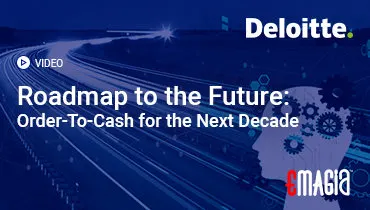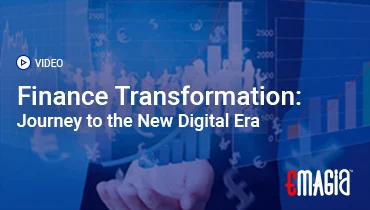In an era defined by rapid technological advancement, the world of finance is undergoing a profound transformation. What was once a domain dominated by manual processes and human intervention is increasingly embracing the power of automation and artificial intelligence. At the forefront of this evolution is the concept of autonomous finance, driven by sophisticated autonomous finance software.
This isn’t merely about automating repetitive tasks; it’s about creating self-driving financial processes that can operate with minimal human oversight, learn from data, and make intelligent decisions. From automating routine accounting entries to predicting cash flow with remarkable accuracy, autonomous finance software promises to redefine efficiency, accuracy, and strategic insight for businesses of all sizes. This comprehensive guide will explore the core meaning of autonomous finance, delve into how this revolutionary software works, highlight its immense benefits, and discuss its pivotal role in shaping the future of financial management.
What is Autonomous Finance? Defining the Self-Driving Enterprise
Defining Autonomous Finance: Beyond Simple Automation
At its heart, autonomous finance represents a paradigm shift from traditional automated processes. While automation typically involves programming machines to perform repetitive tasks based on predefined rules, autonomous finance goes a significant step further. It integrates artificial intelligence (AI), machine learning (ML), and advanced analytics to enable financial systems to learn, adapt, and make decisions independently, often without human intervention.
It’s about creating a “self-driving” finance function where routine operations, data reconciliation, and even predictive analysis occur seamlessly in the background. This concept moves beyond mere efficiency to intelligent self-governance, allowing finance teams to focus on strategic initiatives rather than transactional minutiae.
Autonomous Process Meaning: The Core of Self-Operating Systems
To grasp autonomous finance, it’s crucial to understand the autonomous process meaning. An autonomous process is one that can execute tasks and make decisions without continuous human input. In finance, this translates to systems that can, for example, automatically reconcile bank statements, categorize expenses, or even initiate payments based on predefined conditions and learned patterns.
This capability is powered by algorithms that learn from historical data, identify anomalies, and adapt their behavior over time. The goal is to reduce manual intervention to an absolute minimum, allowing financial operations to run smoothly and accurately, even in complex scenarios. This represents a significant leap from simple rule-based automation.
The Goal of Financial Autonomy for Businesses
The ultimate objective of embracing autonomous finance is to achieve true financial autonomy for businesses. This means empowering organizations to manage their financial health with greater independence, agility, and precision. It liberates finance teams from the burden of repetitive, low-value tasks, allowing them to become strategic partners within the organization.
With financial autonomy, businesses can respond more quickly to market changes, identify opportunities, and mitigate risks with data-driven insights. It transforms the finance department from a reactive record-keeper to a proactive strategic advisor, driving overall business growth and resilience.
How Autonomous Finance Software Works: The Engine of Digital Finance
Leveraging AI, Machine Learning, and RPA in Automated Finance
The power of autonomous finance software stems from its intelligent integration of cutting-edge technologies. Artificial Intelligence (AI) and Machine Learning (ML) are the brains of the operation, enabling systems to learn from vast datasets, recognize patterns, and make predictions or decisions. For instance, ML algorithms can accurately forecast cash flow or identify potential fraud based on historical transaction data.
Robotics Process Automation (RPA) acts as the hands, automating repetitive, rule-based tasks such as data entry, invoice processing, and report generation. Together, AI, ML, and RPA create an automated finance ecosystem that can handle complex financial operations with minimal human intervention, making the process truly self-driving.
Autonomous Function: Examples in Financial Processes
Numerous financial processes benefit from an autonomous function. Consider cash application: instead of manually matching incoming payments to invoices, autonomous systems can use AI to instantly reconcile payments, even with partial amounts or complex remittance advice. In accounts payable, invoices can be automatically captured, validated, and routed for approval, with payments initiated autonomously based on due dates and vendor terms.
For financial reporting, data can be automatically collected, consolidated, and presented in real-time dashboards, eliminating manual report generation. These examples showcase how autonomous accounting and other financial functions can operate with unprecedented levels of efficiency and accuracy.
The Indispensable Role of Data in Autonomous Accounting
Data is the lifeblood of autonomous accounting. AI and ML models rely on vast quantities of high-quality, structured, and unstructured financial data to learn and make informed decisions. This includes transaction histories, customer payment behaviors, vendor terms, market trends, and more. The more comprehensive and accurate the data, the more intelligent and reliable the autonomous systems become.
Therefore, ensuring data integrity, establishing robust data pipelines, and integrating disparate data sources are critical prerequisites for successful implementation of autonomous finance software. Data acts as the fuel that powers the self-learning capabilities of these advanced financial systems.
Key Benefits of Autonomous Finance Software: Unlocking Value
Enhanced Efficiency and Significant Cost Reduction through Automated Finance
One of the most immediate and tangible benefits of autonomous finance software is the dramatic increase in efficiency and significant cost reduction. By automating repetitive, time-consuming tasks across the finance function, businesses can drastically reduce manual labor, eliminate processing bottlenecks, and free up valuable staff time. This leads to lower operational costs associated with salaries, paper, and error correction.
The speed at which autonomous systems can process transactions and generate insights far surpasses human capabilities, allowing finance teams to handle higher volumes with fewer resources. This makes automated finance a powerful driver of profitability.
Improved Accuracy and Minimized Errors in Financial Operations
Human error is an inherent part of manual financial processes. Autonomous finance software, however, minimizes these errors to an unprecedented degree. By automating data entry, reconciliation, and validation, the risk of miscalculations, incorrect postings, and mismatched transactions is drastically reduced. This leads to significantly improved accuracy across all financial records.
The precision offered by autonomous systems ensures that financial statements are reliable, reducing the need for time-consuming audits and corrections. This enhanced accuracy builds trust in financial data, which is crucial for internal decision-making and external reporting.
Real-Time Insights and Data-Driven Decision-Making for Financial Autonomy
Traditional finance often relies on backward-looking reports. Autonomous finance software transforms this by providing real-time insights and enabling data-driven decision-making. By continuously processing and analyzing financial data, these systems can generate up-to-the-minute dashboards, identify emerging trends, and even flag potential issues before they escalate.
This immediate access to actionable intelligence empowers CFOs and finance leaders to make more informed and timely strategic decisions, from cash flow management to investment opportunities. It’s a key step towards achieving true financial autonomy, allowing businesses to react swiftly and intelligently to market dynamics.
Strategic Focus for Finance Teams: Elevating the Role of Finance
Perhaps one of the most transformative benefits is the ability of autonomous finance software to create a strategic focus for finance teams. By offloading mundane, transactional tasks to intelligent systems, finance professionals are freed to engage in higher-value activities. This includes strategic planning, complex financial analysis, risk management, and advising other departments on business growth initiatives.
This elevation of the finance role aligns with modern CFO predictions, which foresee finance leaders becoming more integral to overall business strategy. It allows finance teams to move from being mere record-keepers to being proactive drivers of innovation and profitability.
Core Components and Applications of Autonomous Finance Software
Autonomous Accounting: General Ledger, Accounts Payable, and Accounts Receivable
The core of autonomous finance software lies in its ability to automate and intelligently manage fundamental accounting functions. In autonomous accounting, the general ledger can be automatically updated with transactions, reducing manual journal entries. Accounts payable processes can become self-driving, from invoice capture and validation to automated payment initiation based on terms and approvals.
Similarly, accounts receivable benefits immensely, with autonomous systems handling credit assessments, cash application, and even personalized collection strategies. This end-to-end automation across key accounting areas ensures accuracy and efficiency, transforming the entire financial backbone of an organization.
Automated Financial Reporting and Forecasting with Autonomy
Beyond transactional processing, autonomous finance software excels in automated financial reporting and forecasting. Systems can automatically pull data from various sources, consolidate it, and generate comprehensive financial reports (e.g., income statements, balance sheets, cash flow statements) in real-time. This eliminates the laborious process of manual report generation and aggregation.
Furthermore, leveraging AI and ML, these solutions can perform highly accurate financial forecasting. By analyzing historical trends and external factors, they can predict future cash flows, revenue, and expenses, providing invaluable insights for strategic planning and budgeting. This level of predictive power is a hallmark of true autonomy finance.
Risk Management and Compliance through Autonomous Processes
Autonomous finance software significantly enhances risk management and compliance. By continuously monitoring transactions and financial data, AI-powered systems can detect anomalies, flag potential fraud, and identify compliance breaches in real-time. This proactive risk detection is far more effective than traditional, reactive methods.
Automated audit trails and adherence to predefined rules ensure that processes are consistently compliant with regulatory requirements and internal policies. This reduces the risk of penalties, reputational damage, and financial losses, strengthening the overall governance framework through an autonomous function.
Seamless Integration with Existing ERP Systems for Automated Finance
For autonomous finance software to be truly effective, seamless integration with existing ERP (Enterprise Resource Planning) systems is paramount. Most businesses already rely on ERPs for core operations. The autonomous finance solution must be able to pull data from and push data back into the ERP without friction, creating a unified financial ecosystem.
This integration ensures data consistency, eliminates silos, and allows the autonomous processes to leverage the rich transactional data residing in the ERP. It’s a critical step in achieving comprehensive automated finance across the entire enterprise, maximizing the value of existing technology investments.
The Future of Finance: Embracing Autonomy
The Evolution of Financial Operations: From Manual to Autonomous
The trajectory of financial operations is clear: an evolution from largely manual, human-centric processes to increasingly autonomous systems. This shift is not about replacing human judgment entirely but augmenting it with intelligent automation. The future of finance will see routine, repetitive tasks handled by autonomous finance software, allowing human professionals to focus on complex problem-solving, strategic analysis, and relationship management.
This evolution promises a finance function that is more agile, accurate, and responsive to the demands of a rapidly changing global economy. It’s a journey towards a more intelligent and efficient financial ecosystem, where is autonomous the new standard.
Strategic Importance for CFOs and Finance Leaders: CFO Predictions
For CFOs and finance leaders, embracing autonomous finance software is becoming a strategic imperative. Modern CFO predictions consistently highlight the need for finance to move beyond traditional reporting to become a true strategic partner to the business. Autonomous capabilities enable this shift by providing real-time insights, predictive analytics, and the capacity for rapid scenario planning.
CFOs can leverage these tools to make more informed decisions about capital allocation, risk management, and growth strategies, positioning their organizations for sustainable success in a competitive landscape. It’s about transforming the finance function into a powerful engine for value creation.
Considerations for Implementing Autonomous Finance Solutions: Autonomy Investments
Implementing autonomous finance solutions requires careful consideration. It’s not just a technology upgrade; it’s a strategic transformation. Businesses must assess their current processes, ensure data quality, and plan for change management to ensure successful adoption. Evaluating potential vendors and understanding their specific AI capabilities is crucial.
Companies should view this as an autonomy investment, recognizing that the upfront effort and cost will yield significant long-term benefits in terms of efficiency, accuracy, and strategic advantage. A phased approach, starting with key areas, can help manage the transition effectively and demonstrate early ROI.
Emagia: Powering Your Journey to Autonomous Finance Excellence
In the quest for true financial autonomy and operational excellence, Emagia stands as a pioneering force, delivering cutting-edge autonomous finance software designed for the modern enterprise. We understand that achieving a self-driving finance function requires more than just automation; it demands intelligent, adaptive systems that learn and optimize continuously. Emagia’s AI-powered platform is engineered to transform your entire order-to-cash cycle into an autonomous powerhouse.
Emagia brings a new level of intelligence to your financial operations. Our AI engine automates complex processes like cash application, credit risk assessment, and collections management with unparalleled precision. This means transactions are processed, reconciled, and analyzed with minimal human intervention, freeing your finance team from tedious, repetitive tasks. Our solutions provide an autonomous function that not only enhances efficiency but also drastically reduces errors, ensuring the integrity of your financial data.
Beyond automation, Emagia’s predictive AI capabilities offer strategic foresight. Our system can forecast cash flows, predict payment behaviors, and identify potential risks before they materialize, empowering your finance leaders with real-time, actionable insights. This enables proactive decision-making, allowing you to optimize working capital, mitigate risks, and seize growth opportunities with confidence. It’s about moving from reactive financial management to truly intelligent, self-optimizing operations.
By partnering with Emagia, you’re not just investing in software; you’re investing in a future where your finance function operates with unprecedented levels of speed, accuracy, and strategic contribution. We provide the tools and intelligence necessary to achieve genuine financial autonomy, transforming your finance department into a strategic engine that drives sustainable business success.
FAQs about Autonomous Finance Software
What is autonomous finance?
Autonomous finance refers to financial processes that operate with minimal human intervention, leveraging AI, machine learning, and automation to learn, adapt, and make intelligent decisions independently, such as automatic reconciliation or predictive cash flow.
How does autonomous finance software differ from traditional automation?
Traditional automation follows predefined rules, while autonomous finance software uses AI and machine learning to learn, adapt, and make intelligent decisions dynamically. It’s about self-driving processes rather than just repetitive task execution.
What are the key benefits of using autonomous finance software?
Key benefits include enhanced efficiency, significant cost reduction, improved accuracy, real-time insights for data-driven decision-making, and enabling finance teams to focus on more strategic, higher-value activities.
Is autonomous finance relevant for all businesses?
While larger enterprises with complex operations may see immediate, significant benefits, autonomous finance principles and tools can be adapted for businesses of all sizes, helping to streamline processes, improve accuracy, and provide better financial insights.
How does AI contribute to autonomous accounting?
AI contributes to autonomous accounting by powering capabilities like automated cash application, intelligent invoice processing, predictive credit risk assessment, and real-time financial reporting, reducing manual effort and improving accuracy across the general ledger, accounts payable, and accounts receivable.
What is the future outlook for autonomous finance in banking?
The future outlook for autonomous finance is strong, with predictions of increasingly self-driving financial operations. This will lead to greater efficiency, more accurate forecasting, enhanced risk management, and a more strategic role for finance professionals, driven by continuous advancements in AI and related technologies.



